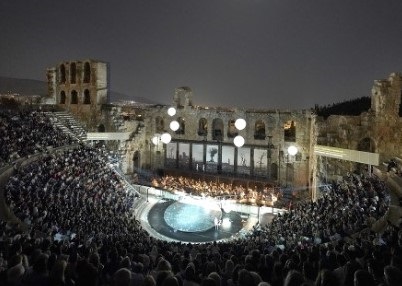
KINSPECTA aims at deeply renewing the questions addressed to ancient sources about the experience of ancient spectators through an interdisciplinary synergy articulating the so-called classical methods of analysis (philological, literary, linguistic, dramaturgical, historical and archaeological) with the contributions of cognitive theories and experimental cognitive sciences. In order to better understand the interdependence of the sensory, emotional and cognitive responses of the spectators (and thus to go beyond a conception of the spectators’ activity as mere hermeneutic expertise), the scientific payoff consists first of all of updating our knowledge on the processes of ‘embodied cognition’. Retaining in particular the hypothesis of sensorimotor resonance, defined as the spontaneous activation of sensory functions and motricity linked to the perception of an action engaged by another (whether seen or heard), KINSPECTA aims at producing a kinetic study of the tragic and comic corpus of the classical period based on the analysis of recurrent dynamic tropes engaging a particular sensorimotor resonance. The hypothesis tested is that the psycho-cognitive engagement of spectators is indissociable from bodily resonance mechanisms, even when (and maybe especially when) the dramas offer spectators high-level linguistic and hermeneutic challenges. This study will support a phase of experimental work in cognitive science. The objective is to bring out new data on the experience of ancient Greek theatregoers grounded not only in the methodologies of the sciences of antiquity but also in those of the experimental sciences.
Responsable : Anne-Sophie Noel (ENS de Lyon, HiSoMA)
Lien d'informations complémentaires : https://hal.science/halshs-04679500v1
Durée du projet : 2023-2028
